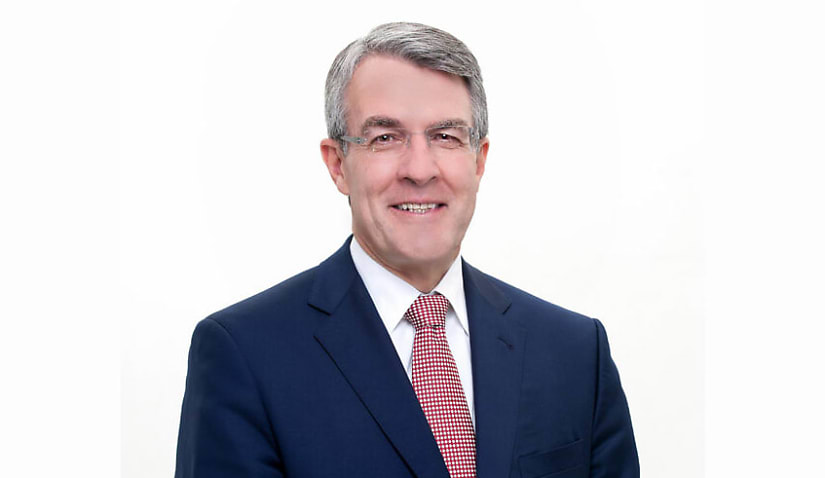Federal Attorney-General, the Honourable Mark Dreyfus KC has detailed how his personal story has informed his commitment to addressing racism in Australia.

Mr Dreyfus spoke at the Kep Enderby Memorial Lecture last week (3 November), and along with his personal story, he discussed the Labor government’s past and future contributions to combating racism in Australia.
However, there is a resurgence in discriminatory attitudes, he noted, with significant 57 per cent increase in complaints made under the Racial Discrimination Act 1975, between 2018 and 2021.
“Like so many Australians, to me, this issue is deeply personal,” said Mr Dreyfus.
“My father, his brother, and their parents were forced to flee from Nazi Germany for the simple reason that they were Jewish.
“My great-grandparents could not be convinced to leave. They died in the Holocaust.
“My family’s story, as well as the broader history of the Jewish people, informs my work as Attorney-General today,” he stated.
“It is a history, personal and cultural, that ensures that I have undying gratitude to this nation and to its generous people for taking in my father, his brother, and my grandparents in their time of desperate need.
“It is a history that makes me appreciative of the wonderful diversity of this nation and the need to continually protect that diversity.
“It reinforces the need to uphold and, where possible, to strengthen the fundamental human rights in which that diversity flourishes.”
Previous Labor governments have had significant involvement with the creation and maintenance of anti-discrimination legislation and strategies.
In 1948, the foundations of the anti-discrimination framework were established under the Labor government.
In the same year, former Labor minister for external affairs Dr Herbert Vere Evatt oversaw the adoption of the Universal Declaration of Human Rights as president of the United Nations General Assembly.
In subsequent years, Labor governments introduced the Racial Discrimination Act, the Sex Discrimination Act, and the Disability Discrimination Act.
“These important human rights initiatives by Labor governments have provided protection from discrimination and, equally as important, they have changed attitudes in the community,” the A-G stated.
In July, Mr Dreyfus introduced the Australian Human Rights Commission Legislation Amendment (Selection and Appointment) Bill into the Parliament, to bolster the integrity of the appointment process for commissioners, which passed into law last week.
The integrity of Australia’s anti-discrimination protections relies on the proper functioning of an independent Australian Human Rights Commission, Mr Dreyfus highlighted.
This step is important for maintaining the record of being an A-status National Human Rights Institution, the A-G explained, which assures that the commission is allowed to engage with international forums, such as the UN Human Rights Council.
The A-G outlined another important step being taken by the government; their commitment to justice for First Nations People.
This begins with recognising First Nations people in the Constitution by enshrining an Aboriginal and Torres Strait Islander Voice to Parliament, he explained.
“The government has begun work on the Voice referendum,” he noted, and “are working in consultation with Aboriginal and Torres Strait Islander people, and the Australian community more broadly, in the lead-up to the referendum”.
The Commonwealth government has committed a record $81.5 million to expand justice reinvestment initiatives across the country, to be designed and delivered in full partnership with First Nations people, he detailed.
“This government wants to see fundamental and long-term change in the underlying social factors that contribute to crime and incarceration,” he stated, “and I will continue to champion the resolution of youth justice and detention issues with my state and territory counterparts through the Standing Council of Attorneys-General”.
“I have come to believe that we must do more than ‘tolerating’ our differences,” Mr Dreyfus stated.
“I feel that it is in the open-hearted acceptance and genuine appreciation of difference, rather than the mere tolerance of it, that the foundations of a truly multicultural and diverse society must rest.”
The A-G outlined the next phases of the anti-racism strategy, noting that it will focus on two major streams of work.
Firstly, a National Anti-Racism Framework will be established, which intends to support the commitment of government, civil society and businesses and the community to tackle racism and promote racial equality in Australia.
The second aspect of the strategy is a national public awareness and educative campaign under the existing “Racism. It Stops with Me” banner.
The Albanese government is funding Australia’s Human Rights Commission to deliver this strategy.
“We look forward to working alongside all of our fellow Australians to author this next essential chapter,” he added.